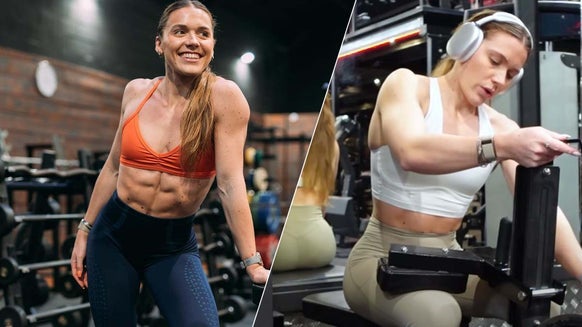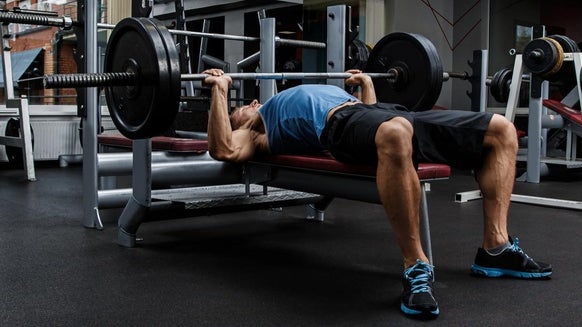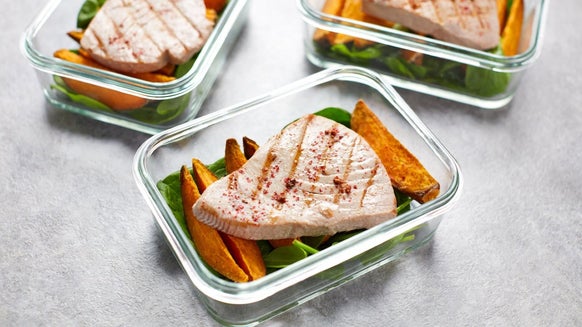6 Protein Myths People Still Believe

It might feel like there are protein supplements and snacks everywhere you look at the moment— whether that’s at the gym, on Instagram, or even in supermarkets these days.
We’re usually the first to stress its importance (for both your sporting performance and general health), but we’re also aware there are some myths floating around that really should address too, so that you can be totally clear on its worth.
1) There's no such thing as eating too much protein
We love it, too, but many people go at their protein with the same determination they approach the squats rack, and there can be side effects to eating as much as you can.
For starters, any increase in your diet should be a gradual thing. Your body needs to metabolise the macros you ingest and it doesn’t work as simply as loading up and expecting your body to cope with the new massive intake.
You may not process protein the same as others — for example, if you’re new to working out, it’s not wise to dive straight in and match what your favourite bodybuilder tells you they eat on a daily basis. If you take in too much protein that you don’t need, your body won’t be able to metabolise it and will store it as fat instead.
Consuming more protein than you need can also result in an increase of nitrogen that your body can’t use or get rid of. A bad scenario that can stem from this is kidney damage (more on this next), not to mention digestive issues before it gets to that point, such as diarrhoea and constipation.

2) The main role of protein is in muscle development
This is only true when combined with a weight lifting programme to match your protein intake. Your body needs the amino acids from protein to repair and build muscle, so if you increase your protein intake according to the amount you work out, yes, it will support muscle growth.
But there is much more to protein’s role in your body than just bigger muscles. It’s a vital building block in a variety of other body components, including blood, bones, cartilage and your skin — not to mention your hair and nails.
3) You don’t need protein from your diet if you take supplements
Nobody appreciates the virtues of protein supplementation more than us — a whey shake gets you everything your body needs pre-, mid- and post- workout, helping to build and replenish your knackered muscles in an easily absorbed way. They taste good, they’re easier transported than a slab of chicken, and they’re so versatile you can mix them in with other foods, yoghurts and blends so that it never tastes the same way twice.
However, it’s recommended that they’re taken alongside a balanced diet, and not as a substitute for food sources of protein — that goes for both animal and plant-based protein.
You need the essential amino acids in your diet, and combining supplementary protein with that of food sources ensures that you get all the essential micronutrients that your body needs from a varied protein diet.

4) It doesn't matter when or how you consume protein - just that you eat enough of it daily
There’s a lot of nonsense info out there that suggests to get this big, or to trim down to that size, everyone needs ‘X’ amount of protein. Your weight loss and muscle gain journey will always be different everyone else’s, even if you have a gym buddy on a similar regimen to you.
It’s true that there is a generalised daily recommendation of 56 grams a day for men and 46g for women, but you are following blindly if you go ahead and stick to that number without taking a few things into consideration — your height, weight, age, and lifestyle. That 56 grams isn’t going to go as far for a mass muscle builder as it is for someone cutting weight.
Instead you should take a holistic approach, which is 1.2-1.7 grams of protein per kilogram of body weight every day.
You also don’t need to eat it every couple of hours to achieve muscular hypertrophy, as the protein that you consume throughout the day adds to that. However, for your body to make efficient use of the protein you eat it’s best to eat smaller meals more frequently, including an important dose of protein immediately after you work out.
5) Eating less protein is the key to weight loss
For weight cutters there is the myth that protein supplements will make you put on weight. Protein does contain calories and consuming large amounts of anything containing calories could essentially make you bigger in a way you don’t want — but this is where macro counting comes into play.
By eating less protein you will be depriving your body of all that it needs to function correctly. The answer here is to understand what contributes to an increase in body fat and identify what you need from what you don’t alongside a healthy workout routine.
6) Some sources of protein are bad
Protein is protein and your body needs it.
However, some food sources can come loaded with other attributes that you should probably limit or cut from your diet for health reasons.
For example, some good sources of protein are also high in saturated fats, which can increase the LDL (bad cholesterol) in your blood. These include fatty meats, red meats, eggs and dairy products — none of which are immediately an issue, but, as mentioned, they can contribute to your cholesterol which can affect your circulatory system.

Take Home Message
There are a lot of myths out there about protein, and it’s always best to deal with the facts before making protein a staple of your exercise and nutrition routine.
Protein is not the magic ingredient that will instantly get you ripped, it can lead to muscular hypertrophy when it’s consumed alongside a consistent and effective workout plan. It can also be really helpful when trying to lose weight, as it’s known for keeping you fuller for longer which can help you cut snacking.
It’s important to do your research before you dive in, and keep in mind that all good things in life should be taken in moderation.








